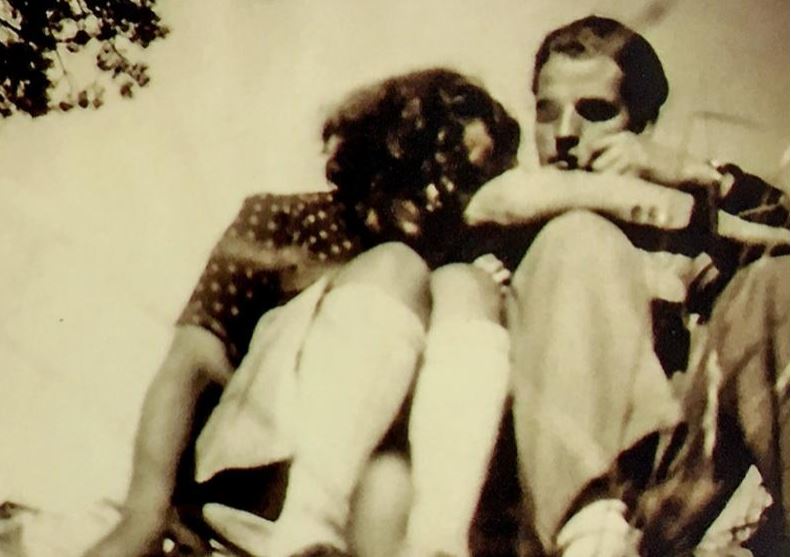E’ mancata all’età di 103 anni, Traute Lafrenz nata il 3 maggio 1919. Era l’ultima appartenente alla “Weisse Rose” .
Nel giugno del 1941 fu lei a far incontrare Alexander Schmorell con Hans Scholl.
Compagna di Hans dirà che con lui “l’amore è durato solo una breve, bella estate”, ma l’amicizia ha resistito.

Frequentò gli incontri della Rosa Bianca a Monaco e organizzò serate letterarie diventando amica della famiglia Scholl. Insieme a Sophie acquistò francobolli e carta per la distribuzione dei volantini della “Weisse Rose”. Fece avere i volantini a colleghi e professori e li portò a Vienna e ad Amburgo.
Fu condannata per “complicità”. Dopo il suo rilascio fu arrestata nuovamente dalla Gestapo nel corso delle indagini sulla filiale di Amburgo della Rosa Bianca. Passò complessivamente due anni in prigione. Avrebbe dovuto essere processata di nuovo rischiando la pena di morte, ma fu liberata nel 1945 dalle truppe americane. (per approfondimenti “La Rosa Bianca non vi darà Pace” di Paolo Ghezzi, ed. Il Margine; )
Traute Lafrenz aveva sempre minimizzato il suo ruolo nella “Weisse Rose”. “Sono solo una testimone contemporanea”, “Visto il destino degli altri, non mi è permesso lamentarmi”
Dopo la guerra finì lo studio di Medicina a Monaco e poi si trasferì negli Stati Uniti.

Dopo che suo marito era morto nel 1995, Traute Lafrenz si era trasferita nel ranch della figlia Renee vicino a Charleston (Carolina del Sud) “Per molto tempo, non abbiamo parlato del passato di mia madre”, dice la figlia. “L’ho saputo per caso, durante un viaggio in Europa negli anni ‘70 a seguito di un invito della Weisse Rose per cui era stata richiesta la presenza della mamma. Solo allora ho capito cosa avesse sofferto e ottenuto”.
——————————————————
Last survivor of the White Rose is dead
The Hamburg resident Traute Lafrenz brought, among other things, leaflets from the White Rose to her hometown
by Bastian Hartig , Simon Sachseder 03/09/2023 8:45 p.m
The last survivor of the White Rose resistance group, Traute Lafrenz, is dead. She died on March 6 at the age of 103 in the US state of South Carolina, the White Rose Foundation announced on Thursday.
“She was a contributor, but didn’t seek heroism, she acted because she thought it was important and necessary,” said the foundation’s chairwoman, Hildegard Kronawitter, the German Press Agency.
Lafrenz was born in Hamburg in 1919. In 1939 she met Alexander Schmorell, a co-founder of the resistance group against the Nazi regime, in the Hanseatic city. Two years later, the medical student moved to Munich University. In Munich she met Hans Scholl through Schmorell at a concert. “They were a couple all summer,” said Kronawitter. “They stayed friends after that. Later Traute Lafrenz grew into the active resistance.«
The White Rose emerged from a circle of friends. Scholl and Schmorell knew each other from medical school – and shared their rejection of the Nazi regime. Like-minded people like Willi Graf, Christoph Probst, Sophie Scholl and the musicologist and professor Kurt Huber also joined
Lafrenz gave White Rose leaflets to friends in Hamburg. The student also brought a leaflet to Vienna – to her aunt and uncle. There she tried to organize a duplicating machine, which was unsuccessful.
After the arrest of Hans and Sophie Scholl in February 1943, Lafrenz drove to Ulm and informed the parents. “They hadn’t been notified,” said Kronawitter. She prepared a plea for clemency for Christoph Probst and had his wife sign it – but when she returned to Munich with it, the three had already been murdered. Afterwards she attended the funeral of Hans and Sophie Scholl – as the only one outside of the family – for Kronawitter a sign of great courage and empathy. “Because of course those funerals were monitored.”
In March 1943 Lafrenz himself was arrested, indicted in April and sentenced to one year in prison for “compliance”. According to the foundation, she had cleverly managed to disguise the actual participation and only appear as an accomplice.
After her release from a Munich prison, Lafrenz returned to Hamburg, where she was remanded in custody after investigations into the “Hamburg branch of the White Rose” – and was imprisoned in several prisons in Hamburg, Cottbus, Leipzig and Bayreuth. In April 1945, she was liberated from Bayreuth prison by US troops.
In 1947 she emigrated to the USA. There she first worked as a resident at St. Joseph’s Hospital in San Francisco, as the newspaper The Post and Courier writes in an obituary. In 1948 she married her colleague Vernon Page. The two opened a doctor’s office together in Hayfork, California. They later moved to Evanston, Illinois, where Lafrenz joined the Anthroposophical Society. In the 1990s, Lafrenz was the general secretary of the Anthroposophical Society in the US, the society writes on its website. According to the obituary, she later became the director of a school for children with learning disabilities. She traveled a lot with her family. In 1993 she moved with her husband to Charleston in the state of South Carolina.
On her 100th birthday she was awarded the Federal Cross of Merit. Federal President Frank-Walter Steinmeier said at the time: »Traute Lafrenz Page was one of the few who, faced with the crimes of the National Socialists, had the courage to listen to their conscience and to rebel against the dictatorship and the genocide of the Jews. She is a heroine of freedom and humanity.«
The resistance fighter was interviewed by former “Spiegel” editor Claas Relotius in 2018. After the counterfeiting scandal came to light, she distanced herself from the interview with the magazine. In several places it is not about her words.